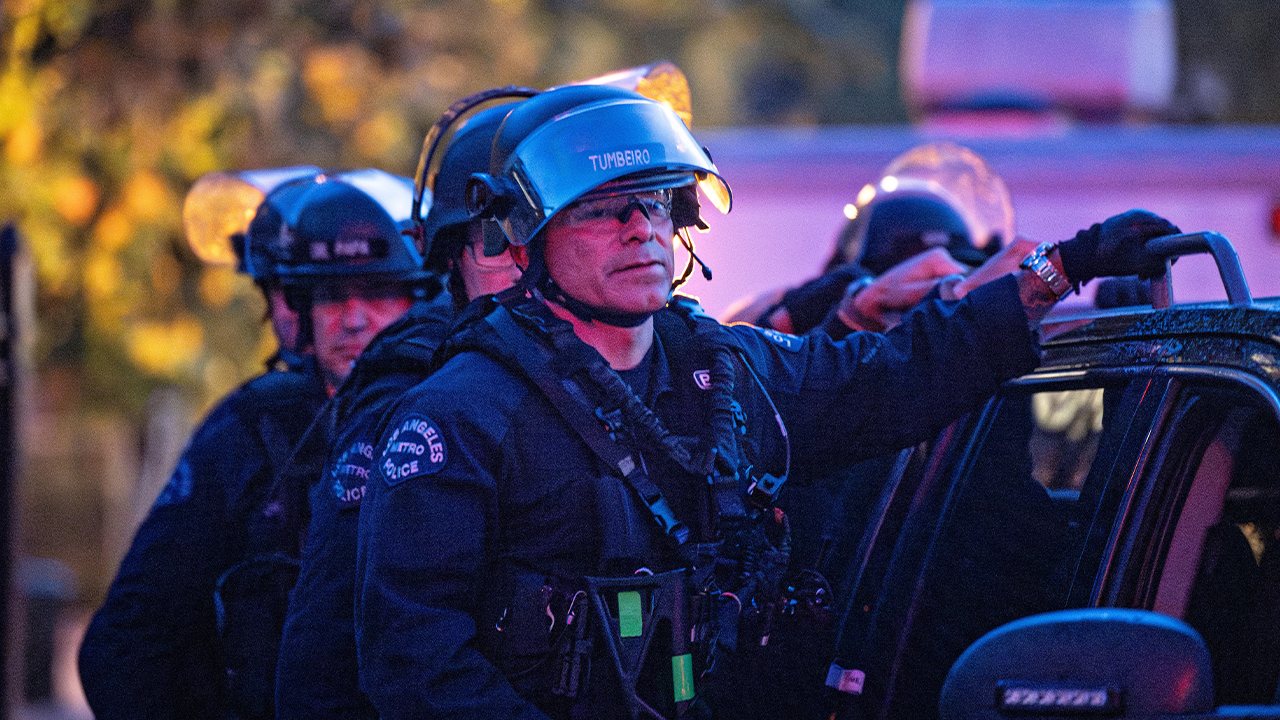San Francisco, CA
Century-old San Francisco institution to close for more than a year

The exterior of the Castro Theatre in San Francisco.
Michele Falzone/Getty ImagesThe Castro Theatre is about to go dark for more than a year as Another Planet Entertainment prepares to break ground on its hotly contested renovation plans for the century-old San Francisco movie palace. The $20 million remodel is slated to begin in early spring 2024, with completion scheduled for the summer of 2025, the Berkeley-based concert production company said in a news release Monday.
“Another Planet Entertainment is thrilled to begin the work to restore the Castro Theatre to its 1922 architectural glory and ensure its continued place in the hearts of film lovers, music lovers and the LGBTQ+ community,” Mary Conde, senior vice president for Another Planet, said in a statement.
Beyond “restoring the magnificence of Timothy Pflueger’s original design,” Conde said plans include improving upon ADA accessibility throughout the theater, including in the audience, onstage and backstage, installing a new heating and air conditioning system, expanding the lobby, and increasing the theater’s concession offerings to include wine, spirits and food from local eateries. Restoration of the original proscenium arch is also underway, as is the removal of the theater’s 800 fixed orchestra-level seats, which have been the subject of intense public debate and is slated to be replaced by “flexible seating” that can be moved in and out of the theater to create standing room for concerts and other live events.
Advertisement
Article continues below this ad
The changes, Conde said, “will make the Castro a venue that respects its heritage while embracing new, and ever more diverse audiences.”
Plans for the Castro were vehemently opposed by a number of community advocates over the past two years, who criticized Another Planet’s lack of transparency and abrupt announcement that it would be taking over operation of the theater in January 2022. Neighborhood organizations including the Castro LGBTQ Cultural District and the Castro Theatre Conservancy formed the Friends of the Castro Theatre Coalition, expressing fear that physical changes to the theater would result in the reduction or loss of the affordable LGBTQ-focused and film-focused programming the historical landmark is known for. Hundreds packed the theater for a lively raucous town hall meeting hosted by Another Planet in August 2022, where the company’s renovation plans were first shared in a public setting. Subsequent hearings at San Francisco City Hall were heated and would often go on for hours.
Though one February vote recommended expanding the historic theater’s landmark status to include “both exterior and interior character defining features, and update the statement of significance to include LGBTQ historical associations,” city officials ultimately voted last October to allow the removal of the hundreds of orchestra-level seats, in addition to approving a proposed use expansion that would allow for further changes to the space, including the ability to sell liquor on the second floor.
People wear T-shirts reading “Save the Seats” during a community meeting held at the Castro Theatre.
Courtesy of Jesse Oliver SanfordAnother Planet is now contracting with EverGreene, which claims to be the largest specialty contractor in the U.S. and is focused specifically on the preservation of historic buildings, artifacts and works of art, according to its website. The company is headquartered in Brooklyn, New York, with regional offices in Chicago, Washington, D.C., and Los Angeles.
Advertisement
Article continues below this ad
“One of the defining features of the Castro is the tent-like painted ceiling which has been obscured from view for decades,” Jeff Greene, executive chairman and founder of EverGreene, said in a statement. “This element will be conserved and restored along with the unique sgraffito murals on the side walls, bring[ing] the whole back into harmony with Pflueger’s original vision.”
Another Planet is also partnering with Bay Properties, Inc., and the Nasser family, which owns the theater, on the construction efforts. The aforementioned ceiling will be one of the first features to be restored when the theater closes, as well as the neon sign, David Perry, a spokesperson for Another Planet, said in an email Tuesday.
A packed house at the Castro Theatre.
Mark Mainz/Getty ImagesIt’s not clear what events are planned for when the theater does reopen. In March, Another Planet said it would “commit to hosting LGBTQ+ activities and artists as frequently as possible, with no less than 25% of programming.” Perry told SFGATE at the time that the company plans to hold about 170 events at the venue per year at the theater — a figure that still may change or increase. The daily repertory film screenings the Castro was once famous for are not part of that current plan; Perry said they were “not financially viable in a post-COVID, post-Netflix world.”
Advertisement
Article continues below this ad
Leading up to the closure, the Castro is scheduled to host drag cabaret duo Kiki & Herb, indie soul singer-songwriter Ginger Root, as well as screenings of “It’s A Wonderful Life,” “Die Hard” and John Waters’ “Female Trouble.” The San Francisco Gay Men’s Chorus is slated to hold their annual Christmas Eve performances, and January will bring live podcast recordings of Bob the Drag Queen and Monét X Change’s “Sibling Rivalry” and the award-winning “Welcome to Night Vale” featuring musician Danny Schmidt, as well as a slew of SF Sketchfest events.
An evening with stand-up comedian and actor Marc Maron is slated to be the last show at the venue before a special closing event on Feb. 4 that will be open to the public, after which programming will temporarily come to an end.
More on the Castro Theatre

San Francisco, CA
San Francisco buys vodka shots for homeless alcoholics in taxpayer-funded program
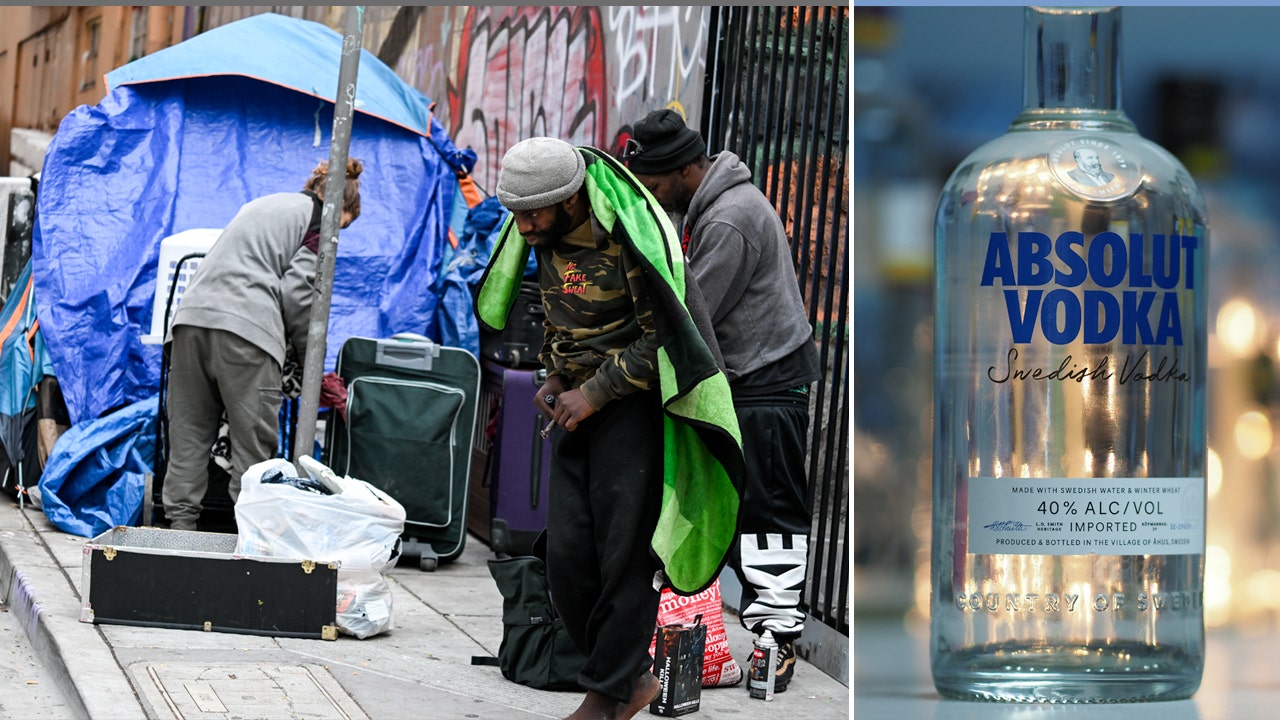
The City of San Francisco is providing free beer and vodka shots to homeless alcoholics at taxpayer expense under a little-known pilot program.
The “Managed Alcohol Program” operated by San Francisco’s Department of Public Health serves regimented doses of alcohol to voluntary participants with alcohol addiction in an effort to keep the homeless off the streets and relieve the city’s emergency services. Experts say the program can save or extend lives, but critics wonder if the government would be better off funding treatment and sobriety programs instead.
“Established in countries such as Canada and Australia, a managed alcohol program is usually administered by a nurse and trained support staff in a facility such as a homeless shelter or a transitional or permanent home, and is one method to minimize harm for those with alcohol use disorder,” the California Health Care Foundation explains in an 2020 article describing the pilot program.
“By prescribing limited quantities of alcohol, the model aims to prevent potentially life-threatening effects of alcohol withdrawal, such as seizures and injuries.”
REP. SCHIFF REPORTEDLY ROBBED IN SAN FRANCISCO, FORCED TO ATTEND RITZY CAMPAIGN DINNER WITH NO SUIT TO WEAR
A man pours liquor from a small bottle into a glass in the evening. San Francisco has funded a pilot managed alcohol program to provide free beer and vodka shots to homeless people with severe alcoholism. (Soeren Stache/picture alliance via Getty Images)
The San Francisco managed alcohol program, or MAP, was established during the COVID-19 pandemic to prevent vulnerable homeless people who were placed in isolation in hotel rooms from suffering from alcohol withdrawal. But the program, which started with 10 beds, has since been expanded into a 20-bed program that operates out of a former hotel in Tenderloin with a $5 million annual budget, the San Francisco Chronicle reported.
Alice Moughamian, the Nurse Manger of the Managed Alcohol Program and the San Francisco Sobering Center, explained in an October presentation that nurses provide clients with a motel room, three meals a day, and enough alcohol “to meet their addiction needs, but keeping someone at a safe level of intoxication.”
Initial success in stabilizing alcoholic patients prompted health officials to expand the pilot into a long-term program with 10 beds earmarked for “the Latinx and indigenous population,” while 12 additional beds are supported at the city’s traditional sobering center, Moughamian said.
Bryce Bridge, a social worker involved with the program, said during the presentation that once a client is identified as having alcohol abuse problems and admitted, they are assessed to determine individual needs. Clients are connected to a primary care doctor, provided resources to secure government identification if they lack a social security card or other documents and assisted with psychiatric care, wellness activities on site and other evidence-based treatments.
BLUE STATE DEMS TURN ON GOVERNOR AS HOMELESS COUNCIL CAN’T ACCOUNT FOR $20B IN SPENDING
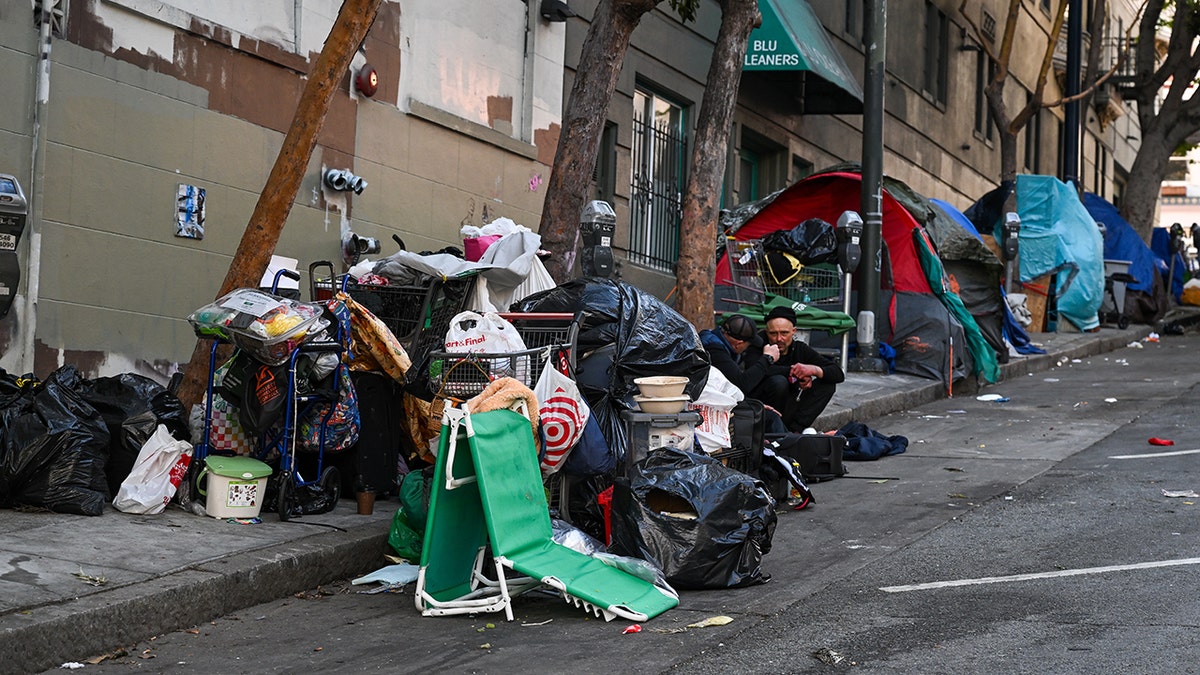
A homeless encampment is seen in the Tenderloin District of San Francisco, California, United States on June 6, 2023. (Tayfun Coskun/Anadolu Agency via Getty Images)
“We actually connect them to different community-based organizations that assist us with conducting art groups, and poetry groups and just kind of help them explore ways that they can express themselves,” Bridge said.
Bridge also said marijuana use is “fairly common in our sites” and said there is no policy prohibiting marijuana consumption, though health providers monitor that activity to prevent ill health effects or interpersonal conflicts.
While relatively unknown until now, the program is under fresh scrutiny after Adam Nathan, CEO of an AI company and chair of the Salvation Army San Francisco, made several social media posts criticizing what he witnessed at the location.
“Inside the lobby, they had a kegs [sic] set up to taps where they were basically giving out free beer to the homeless who’ve been identified with AUD (Alcohol Use Disorder),” Nathan wrote on X after visiting the hotel in Tenderloin where homeless alcoholics are served.
LOS ANGELES IN HOT WATER FOR SPENDING HUNDREDS OF MILLIONS ON WORSENING HOMELESS CRISIS

San Francisco’s managed alcohol program is run out of an old hotel on Eddy Street in Tenderloin. (Google Maps)
“It’s set up so people in the program just walk in and grab a beer, and then another one. All day,” he claimed.
“The whole thing is very odd to me and just doesn’t feel right. Providing free drugs to drug addicts doesn’t solve their problems. It just stretches them out. Where’s the recovery in all this?” he asked.
The Salvation Army promotes abstinence for alcoholics and provides free adult rehabilitation programs.
Public health officials called some of Nathan’s claims misleading. In a statement to the San Francisco Chronicle, the health department said alcohol is dispensed by a nurse and homeless people who aren’t participating can’t just walk in to the facility and get a free beer. The program operates in a former Tenderloin tourist hotel that has a bar, but on-site taps are “inoperable and unused,” the statement reportedly said.
Still, the program has also received criticism from none other than San Francisco Mayor London Breed, who said in February that harm reduction was “not reducing harm” but “making things far worse.”
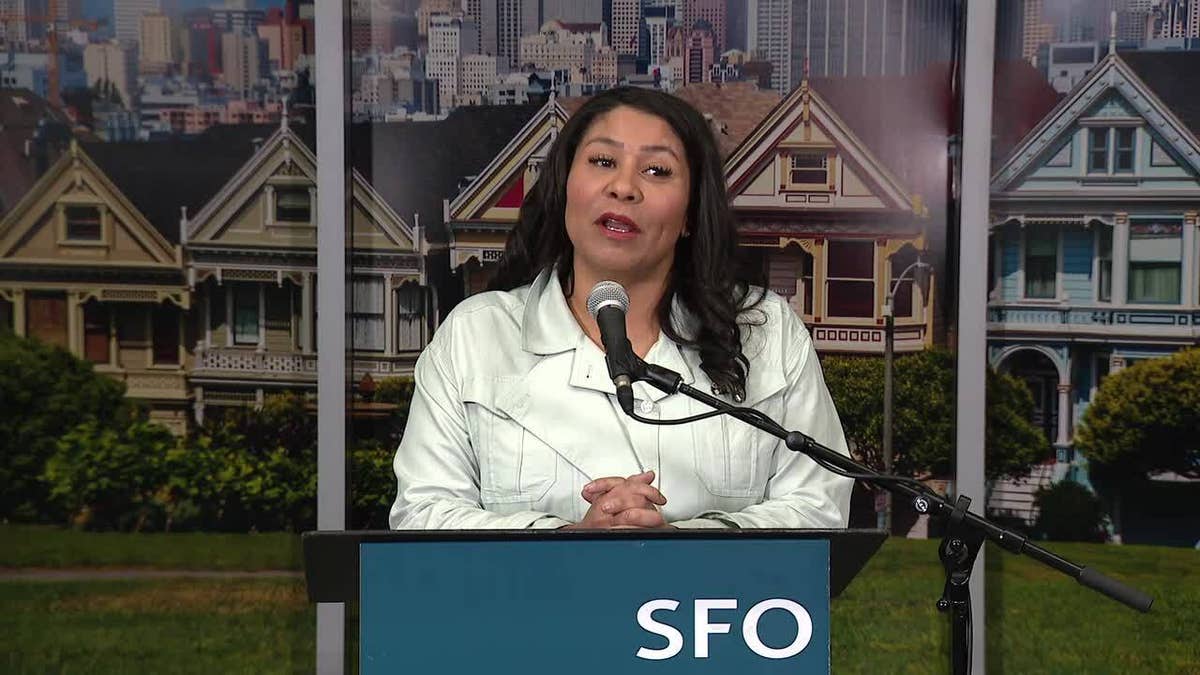
San Francisco mayor London Breed has criticized harm prevention programs that provide addictive substances to substance abusers. (KTVU)
“Are we just going to manage people’s addictions with our taxpayer dollars in perpetuity forever? It seems like that’s basically what we’re saying,” said Tom Wolf, who is in recovery for heroin addiction, in a statement to the Chronicle. “I think we should be spending that money on detox and recovery.”
But recovery is not the point, according to Moughamian.
“Our goal at MAP is not to decrease the amount of alcohol that is consumed, or to taper someone towards abstinence, although both of these things have happened with clients in our program,” she said in the October presentation. “The goal is to mitigate the many health, legal and interpersonal harms associated with unsafe alcohol use.”
San Francisco health officials say the program has saved $1.7 million over six months in reduced hospital visits and police calls made by participants who previously heavily relied on emergency services. Officials said that after clients entered the program, visits to the city’s sobering center dropped 92%, emergency room visits declined more than 70%, and EMS calls and hospital visits were both cut in half, the Chronicle reported.
CLICK HERE TO GET THE FOX NEWS APP
City officials have previously said that just five residents who struggled with alcohol addiction had cost the city more than $4 million in ambulance transports over a five-year period, with as many as 2,000 ambulance transports during that time, according to the Chronicle.
The San Francisco Fire Department has spoken positively about the program, telling the outlet the managed alcohol program “has proven to be an incredibly impactful intervention” at reducing emergency service use for a “small but highly vulnerable population.”
Other countries, including Canada, Portugal and the U.K. have adopted managed alcohol programs at a much faster pace than the U.S. Canada has more than 40 such programs, according to the University of Victoria’s Canadian Institute for Substance Use Research.
A 2022 study of Canada’s managed alcohol programs found that homeless people suffering from severe alcoholism had a reduced risk of death and fewer hospital stays after participating.
San Francisco, CA
San Francisco man’s biotech detour led to pub crawl career

SAN FRANCISCO — A San Francisco man has found success in an unexpected field and he’s helping local businesses survive.
Matt Seliga once had his sights set on medical school.
“I graduated college then moved to Baltimore,” he said. “I was working at Center for Disease Research which was at John Hopkins. Basically it’s DNA testing.”
He sent resumes all over the world to explore life outside his home state of Pennsylvania and ended up moving to San Francisco for a biotech job.
That was not the end of his journey.
Now he’s top dog in the world of pub crawls in San Francisco. He had long taken side jobs such as bartending to try to make new friends outside the biotech world. The idea of a pub crawl business came to him after he went on one in Washington D.C. Seliga admits the first 10 years were tough as he tried to build his business, Crawl SF.
“I went out every night and just went to every bar in every neighborhood and talked to people,” Seliga said. “I must’ve looked ridiculous.”
Crawl SF is in its 20th year. Seliga holds numerous events throughout the year but the wildest pub crawls happen during celebrations such as St. Patrick’s Day and Halloween. He sells tickets then his clients get wristbands which help them get cheaper drinks at participating bars.
“Halloween in 2022 was our largest event ever,” Seliga said. “We were actually talking to the Guinness Book of World Records. We didn’t actually end up going through the whole process to get them to come out and verify everything. The world record was 4,000 something but we had more than 14,000 people.”
Seliga built a family business from the ground up. His sister helps with planning and executing the events and his wife handles a lot of the marketing.
“He has so many ideas and he actually brings them to life and it’s been really, really cool,” Caitlin Seliga said. “We’ve done a lot of fun things together.”
And the family is growing.
Caitlin and Matt are expecting their first child next month and that means more ideas have started to float around Matt’s head.
“To go along with my child on the way, we’re actually looking into the concept of doing kid crawls,” he said. “Obviously they’re not going to be drinking.”
Seliga is thinking about creating a safe place for families to take their kids to celebrate days like Halloween.
Crawl SF and biotech couldn’t be more different but Seliga is enjoying life being his own boss and doing something that he loves.
San Francisco, CA
San Francisco Giants Trade Off Two Starters in Separate Trades

The San Francisco Giants made two separate deals, trading away pitchers with starting experience after designating both for assignment.
The Giants traded right-hander Mitch White to the Milwaukee Brewers for cash considerations. They also shipped right-handed pitcher Daulton Jefferies to the Pittsburgh Pirates in exchange for outfielder Rodolfo Nolasco per the MLB transactions wire.
White joined San Francisco a few weeks ago when the Toronto Blue Jays dealt him for cash. The 29-year-old White, a former starter with the Los Angeles Dodgers and the Blue Jays in 2022, made three relief appearances for the Giants with an 11.81 ERA. He struck out one, walked five and gave up seven earned runs in 5.1 innings.
The Brewers designated Corbin Martin for assignment to make room for White. Milwaukee is hoping he can reclaim the stuff that made him a Top 20 prospect in the Dodgers’ organization in the minors.
Jefferies joined San Francisco on a minor-league deal before the season and he was promoted shortly after Opening Day. The Giants DFA’d him when they called up rookie Mason Black.
The 28-year-old appeared in two games and made one start, as he went 0-2 with a 17.36 ERA. He struck out four and walked two, allowing 13 runs (nine earned) in 4.2 innings.
Jefferies pitched for the Oakland Athletics from 2020-22, including eight starts in 2022, where he went 1-7 with a 5.72 ERA. He missed all of the 2023 season due to injury.
The Pirates signed Nolasco as an international free agent in 2019, and the 22-year-old was only batting .173 with two home runs and 12 RBI in 21 games at High-A Greensboro.
San Francisco should view Nolasco as a long-term prospect with power, as he belted 20 home runs and drove in 72 runs with Bradenton in the Florida State League in 2023.
-

 News1 week ago
News1 week agoPolice enter UCLA anti-war encampment; Arizona repeals Civil War-era abortion ban
-

 Politics1 week ago
Politics1 week agoThe White House has a new curator. Donna Hayashi Smith is the first Asian American to hold the post
-

 News1 week ago
News1 week agoSome Florida boaters seen on video dumping trash into ocean have been identified, officials say
-
)
) Movie Reviews1 week ago
Movie Reviews1 week agoThe Idea of You Movie Review: Anne Hathaway’s honest performance makes the film stand out in a not so formulaic rom-com
-

 Education1 week ago
Education1 week agoVideo: President Biden Addresses Campus Protests
-

 World1 week ago
World1 week agoUN, EU, US urge Georgia to halt ‘foreign agents’ bill as protests grow
-

 World1 week ago
World1 week agoIn the upcoming European elections, peace and security matter the most
-

 World1 week ago
World1 week agoArizona Senate repeals near-total 1864 abortion ban in divisive vote






